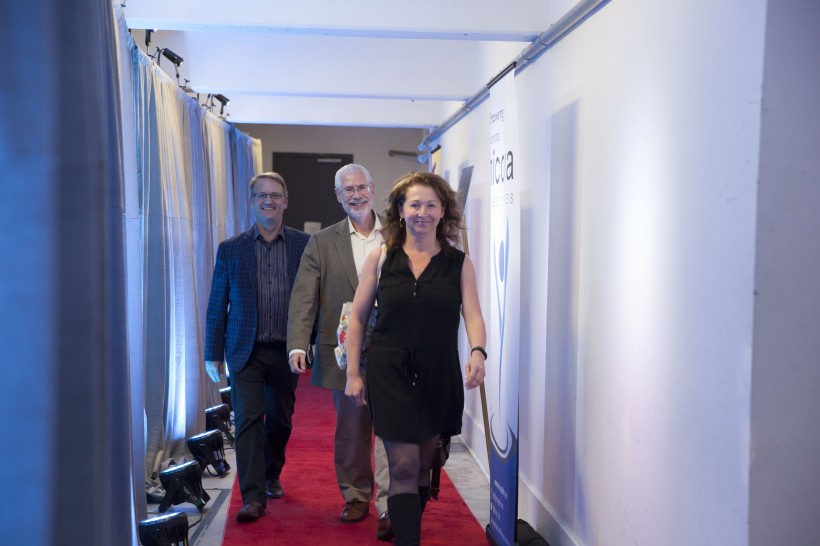Steve Blank on Friday showed why he’s the entrepreneurship prof that other entrepreneurship profs talk about.
The serial entrepreneur and academic made two appearances at Communitech and displayed the wit and insights that have made him one of the most often-cited startup educators in the world. I missed the appearance by the father of customer discovery methodology at the Innovation Summit, but was lucky enough to witness a discussion with him at the Rev Centre Stage event, highlighting the pitches of the Rev accelerator graduates.
The discussion with Kevin Hood, President of Market Access Corp., and moderator Carol Leaman, CEO of Axonify, became a celebration of lean startup basics, with all three panelists delivering great insight.
But the highlight was the concise insights delivered by Blank. In fact, one of the most interesting parts of the evening was witnessing Blank question the Rev graduates, burrowing down into their projections to assess the real prospects of their businesses. In a few seconds, he could drill into the foundation of the presentation and reveal any cracks.
Blank explained that lean methodology is now pretty well universally recognized as has three components: expressing all hypotheses on a single canvas; testing those hypotheses with customers or partners; and employing agile development to produce a minimum viable product.
Blank said the entrepreneur has to test these hypotheses because it’s too easy to convince yourself that they are correct.
“All founders believe they’re visionaries,” he said. “We now have enough data to say, ‘You’re actually hallucinating.’”
The theme of customer validation resonated throughout the discussion from all the participants. Hood for example, said he believed too many founders put supply before demand.
“There are companies out there and you ask them what the customers are saying [about their product] and they say, ‘We aren’t ready to talk to customers yet,’” said Hood. “Well that’s the craziest thing I ever heard.”
Blank meandered into other facets of entrepreneurship. For example, when Lehman asked him when companies should raise money, he responded by noting we’re in a funding bubble. “If it’s dropped at your feet, then pick it up and take it,” he said. “This bubble isn’t going to last forever.”
On the reasons company die: “Hubris will kill the company more quickly than any other failure.”
And even on the subject of failure he was entertaining and profound. He recounted after a venture-backed company of his had failed, he told his mother, a Russian immigrant, that he had just lost $35 million. Her response after a pause was, “Where did you leave it?” But he also told her to her astonishment that the people who invested $35 million had just backed him in a new venture with $12 million.
“In an entrepreneurial cluster like Silicon Valley or Waterloo, there is a word for failure,” he said. “It’s experience.”










